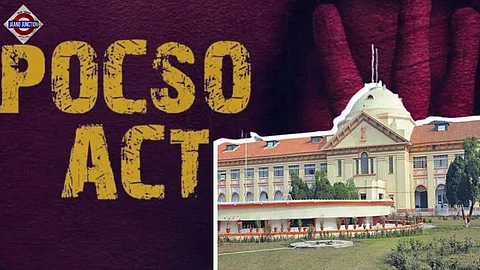

The Patna High Court has observed that the Investigating Officer must ascertain the age of the victim in cases falling under the Protection of Children from Sexual Offences Act, 2012 (POCSO Act). The court added that relying solely on medical opinion and self-assessment is not a reliable method for determining a person's age.
The division bench comprising Justice Ashutosh Kumar and Justice Nani Tagia observed, “Be that as it may, with such confusion over the age of the victim, it was the solemn duty of the Investigating Officer to inquire about her age from the school in which she had been studying. It appears from the records of the case that no such effort was made with respect to ascertaining the age of the victim for confirming that she was less than 18 years of age, when she entered into a sexual relationship with the appellant.”
“As we have already noted, no positive findings can be culled out from the records with respect to the age of the victim. It was imperative on the part of the Investigating Officer, we repeat, to have inquired about the age of the victim, especially, for ascertaining whether she had crossed the the threshold of minority. The medical opinion and self-assessment are no sure grounds of computing the age of a person,” the bench further observed
The above ruling was made while the Court acquitted a young man who had been convicted of kidnapping and sexually assaulting a minor under the Protection of children from Sexual Offences Act, 2012 (POCSO Act).
In accordance with the factual matrix of the case, the appellant had been convicted of abduction and sexual assault of a minor girl. He had been sentenced to 7 years of imprisonment for abduction and 20 years each for offenses under Sections 366A and 376(2) of the Indian Penal Code, 1860 (IPC) and Sections 4 and 6 of the POCSO Act.
At the time when the impugned judgment was delivered, the Appellant, who was assessed to be 20 to 21 years old, had allegedly enticed the victim to Kanpur, where she said stayed as his wedded wife for about two months.
The medical examination of the victim had reflected her age to be between 15 to 16 years. Whereas the initial FIR had suggested kidnapping, the victim's later testimony had contradicted coercion, revealing a consensual relationship. Aggrieved, the accused had approached the court.
The court carefully examined the victim's deposition before the Trial Court and observed that she harbored no animosity towards the appellant. Notably, she was reluctant to disclose her sexual relationship with the appellant.
The court acknowledged that, due to her tender age, she revealed details about her pregnancy when specifically questioned, suggesting that there was no coercion involved, and the disclosure appeared consensual.
However, the moot question before the Court was, 'would a minor consent to any sexual act?', addressing which the court noted the lack of a definitive opinion on the victim's age from the Trial Court.
The Court carefully considered various statements regarding the victim's age, noting that the father suggested a range of 15 to 16 years, the mother consistently stated 14 years, the victim herself claimed 14 during legal proceedings, and medical examination indicated an age range of 15 to 16 years.
Despite this uncertainty, the Court asserted that it was established the victim was less than 16 years old, taking the average of these projections.
Additionally, the Court highlighted that the medical examination revealed no signs of force or injury on the victim's body. However, the Court found found the 13-week pregnancy unexplained. The victim, although initially denying any sexual intercourse with the appellant, later attributed her pregnancy to their relationship, leading the Court to conclude she had been inconsistent in her statements from the beginning.
The Bench observed that the victim's claim of being kidnapped lacked supporting evidence, particularly considering she was recovered from the appellant's house after two months. The Court reasoned that the absence of any outcry during her transportation to Kanpur and her stay in rented accommodation with the appellant contradicted the kidnapping narrative.
In light of the appellant's denial of coercion or wrongdoing, coupled with the testimony of close relatives indicating the victim left her home in anger, the Court found it challenging to hold the appellant liable under Sections 4 and 6 of the POCSO Act, 2012.
Thus, the Court allowed the Appeal and acquitted the Accused.
